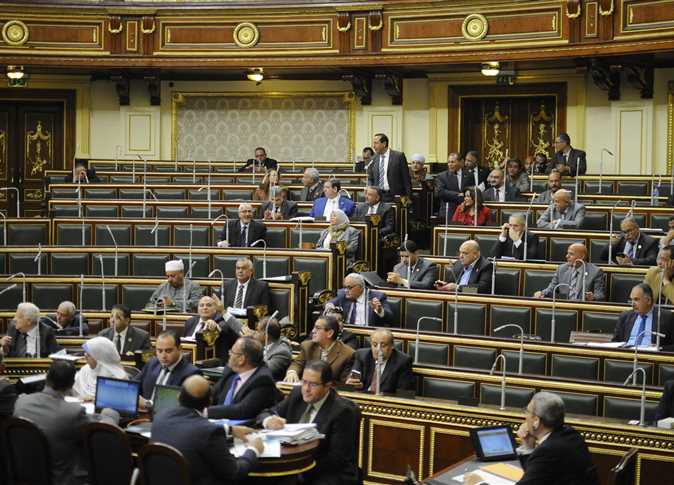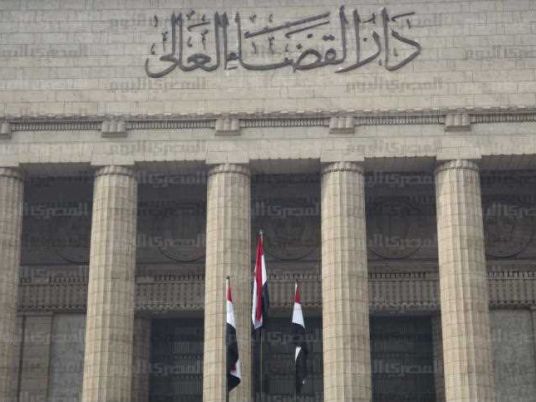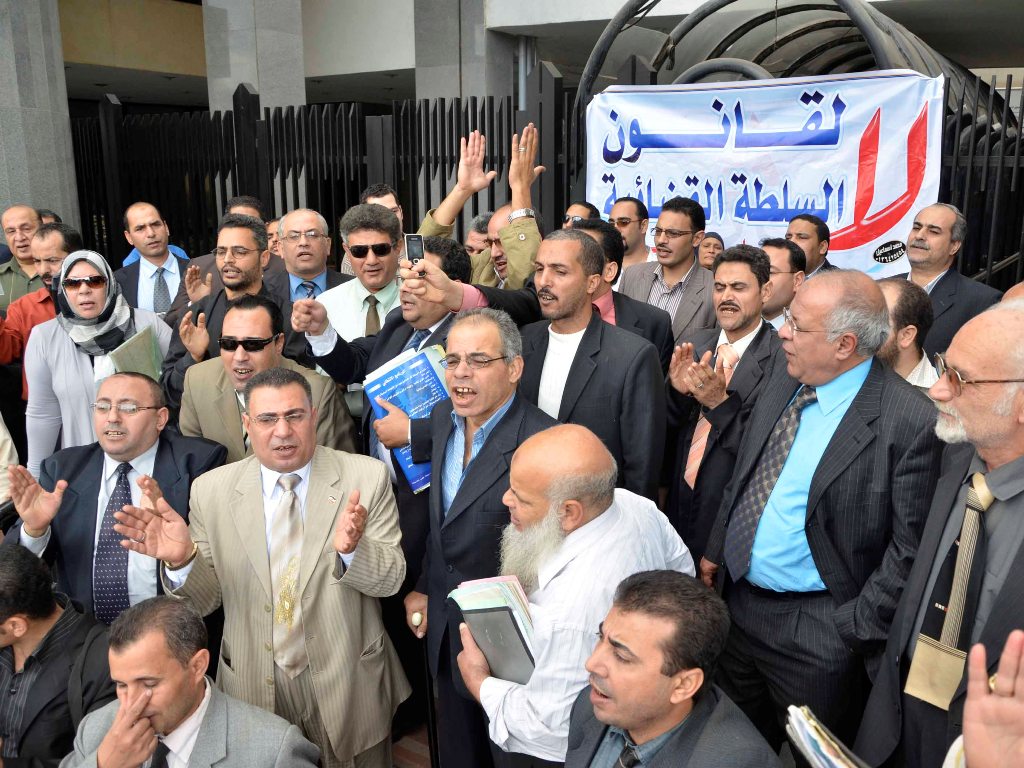As calls for reform echo through Egypt’s government institutions, judges are pushing for an overhaul of the long-criticized Judicial Authority Law issued under former President Hosni Mubarak. Critics say the law opens the door for government interference in the judiciary and demand safeguards to protect judges’ independence.
"’Take your hands off the judiciary’, that's my message to the government," said Salah Sadeq, prominent lawyer and law professor at Al Sadat Academy of Administrative Sciences.
"All Egyptian constitutions guarantee the separation of powers…but, in practice, the present Judiciary Authority Law created 53 possible ways for the minister of justice to interfere in the work of judiciary," Sadeq said.
Sadeq’s sentiment is one that is gaining prominence among judicial circles.
What leaves room for government interference in the judiciary is the Judicial Inspection Department, a body meant to assess judges’ performance. The department is affiliated with the Ministry of Justice, a part of the executive branch, rather than the Supreme Judicial Council, the country’s preeminent judicial institution.
"Judges should be independent and should not be dismissed from office by the government,” Sadeq said, arguing that such reform would ensure that verdicts are based solely on law and not a justice’s career ambitions.
"The Supreme Judicial Council is the judges' warranty card,” said Ashraf Elewa, a Judges Club board member. “Judicial inspection should be subordinate only to council."
Judges are also demanding the abolition of the Investigation and Complaints Department of the Ministry of Justice. They say that the department is used as a tool to intimidate judges; in the past, it opened investigations against judges who went against the government.
"These mechanisms of interference should be cancelled to guarantee judges' objectivity, justice and equality," Sadeq said.
Ahmed Mekky, vice president of the Court of Cassation and another member of the judicial independence movement, says he believes that judges are capable of self-governance without oversight from the Ministry of Justice. As evidence, Mekky points to the 2005 elections, when judges risked their careers to condemn the Mubarak government for rigging votes, fulfilling their constitutional obligation to oversee voting.
A new Judicial Independence Law is not yet on the table. The question for the pro-reform judges is how to introduce change and restore judicial independence.
The Youth Justice Coalition, a group of judges and heads of courts under 50 years of age that was formed in the last few months, prepared a draft law that includes proposed amendments to the Judicial Authority Law.
The main amendments proposed by the group include ending the Ministry of Justice’s authority over judges and prosecutors to ensure the establishment of a civil state supported by a fully independent judiciary. They also proposed transferring responsibility for judicial review from the ministry to the Supreme Judicial Council.
The group also suggested that the council, rather than the country’s president, select the attorney general.
The draft law suggests creating "judicial police," policemen and officers from the armed forces who would be “financially dependent” on the Supreme Judicial Council, but the proposal is unclear on exactly what role they would serve.
Imposing a maximum age limit for judges in administrative positions while setting rules for ways in which the older judges can use their experience to benefit the judiciary is also among the proposals.
The Youth Justice Coalition’s draft law states that the Judges Club should have complete autonomy and its only oversight should come from its general assembly. This, the judges hope, will prevent outside interference.
The judges' demands for reform are not a post-revolution development.
In 2005, after the rigged parliamentary elections, which the judges were supposed to supervise, a protest movement calling for judicial independence began. Judges protested government interference in their work and took their demands to the streets, staging protests and sit-ins.
Judges like Hesham el-Bastawisi, a potential presidential candidate, and Mahmoud Mekky were referred to disciplinary hearings for accusing judges of participating in efforts to rig elections. News reports later said that the regime forced former Minister of Justice Mahmoud Abul Lel to sign the indictments.
Protesters around Egypt demonstrated in solidarity with the two judges, who were heralded as advocates for political change and reform.
In 2006, a new version of the Judicial Authority Law failed to assuage judges’ concerns.
The law – passed in secret without consultation with the judiciary – was met with resistance from judges and opposition forces for not creating an independent judiciary.
The battle did not end there; Abul Lel resigned from office because he had been forced to refer Mekky and Bastawisi for discipline. Mahmoud Mari’e was recruited to fill Bastawisi’s former post, but faced stiff opposition from justices who called for his resignation.
With Mubarak gone, few oppose judicial independence. Interim Minister of Justice Mohamed al-Guindi has reportedly promised the head of the Judges Club he would present the judges’ demands to the ruling Supreme Council of Armed Forces.
With parliamentary elections scheduled for September, the pro-reform judges say that passing a new law guaranteeing an independent judicial branch is a crucial step in Egypt’s transition to democracy. So far, however, few concrete steps have been taken in that direction.




